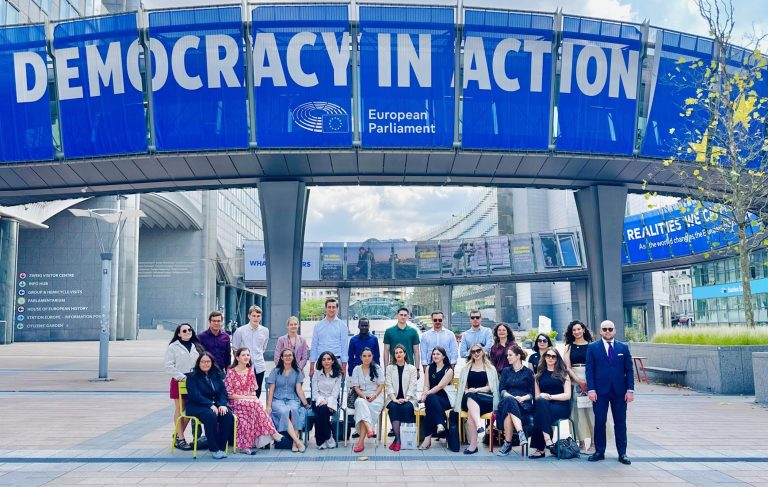Traveling from Kosovo, Canada, and Uganda, a cohort of dedicated World Youth Alliance members attended the recent Advocacy Academy in Brussels, Belgium. What brought these young trainees together is one common goal: the defense of human dignity. The WYA Advocacy Academy is a dynamic training program offered to WYA members, to address pressing global policy issues of the day, giving them the tools to be an effective voice for human dignity both nationally and internationally.
Starting off the Academy with an in-depth analysis of international law, WYA President, Paula Lopez, affirmed, “people are the solution, not the problem.” In framing human rights with this person-centered approach, trainees learned the extensive ins and outs of a variety of major policy debates. WYA’s white papers paved the way for intensive discussion and dialogue on how international law and human rights are created, and how to refute claims about so-called “rights.”
“Because of the WYA Advocacy Academy, I now understand the context of why policies have gotten the way they are today. It brings background and history to global issues, and I feel confident to defend human dignity back in my school and to my students,” one attendee said.
Director of Advocacy, Rokaia Elhommosani, taught trainees how critical it is to scrutinize the subtle nuances in language included in international treaties. “Rules of interpretation are there for a reason; mere inferences do not work.”
Trainees received this lesson with excitement, ready to share how recent laws have personally influenced their home countries and how the Advocacy Academy would be able to teach them the details of how to advocate for better ones. When it comes to foreign policy, another WYA member stated, “[t]here is a difference between writing down human rights on paper and actually implementing them.”
Rokaia concluded that it is essential for trainees to be well-versed in research, argumentation, and critical thinking—there is a global need for law that explicitly confirms, and also continues to affirm, the inherent dignity of each person.
This is the foundation of the Advocacy Academy. Mikaela from Albania was spot on when she said, “[w]e have rights because we have dignity, not the other way around.”
As Rokaia said, “[w]e’re seeing the changes right now. I think it’s in our consciences to think not just of our own local communities but all communities throughout the world that will be affected by our advocacy now. We need to think in the long run.”
Examining case studies like the 1970s mass sterilizations in India, WYA members learned why it is important to consider principles like solidarity and justice in readdressing development aid. Ending the Advocacy Academy with a visit to the European Parliament, trainees saw the place where policies are proposed, shaped – and funded.
With the Advocacy Academy, young members are educated and equipped to represent the voice of human dignity and to inspire a person-centered approach to policymaking in their own countries and around the globe. Interested in becoming a certified advocate?




